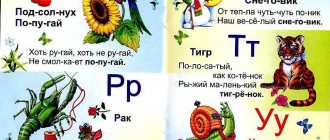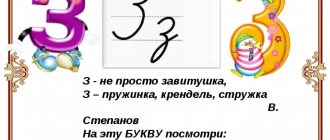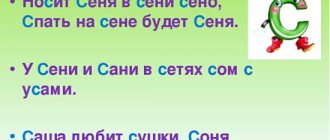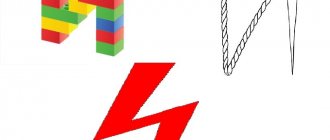Collocations (63)
- on the other side
- easily
- since
- from scratch
- On the one side
- from the position
- by using
- with joy
- from the very beginning
- since then
- over time
- from point of view
- with difficulties
- Sincerely
- with pleasure
- taking into account
- taking into account that
- with the aim of
- on my own
- by itself
- the most important
- fresh breeze
- fresh bread
- free time
- kind
- related to that
- draw a conclusion
- canny
- present day
- horny
- seven spans in the forehead
- seven Fridays a week
- strength of will
- strength of mind
- strong-willed
- through the prism
- more likely
- God bless
- Sweet dreams
- It should be noted
- in the following way
- lexicon
- headlong
- meaning of life
- with time
- from the outside
- we inform you the following
- component
- comprises
- health status
- social network
- range of services
- Good night
- carelessly
- At once
- among them
- that is
- older generation
- it is worth noting
- shot sparrow
- striving for the best
- as it appears
- field of activity
On this page you can find the most popular words starting with "s" (at the beginning of the word - S). The list is sorted alphabetically. You can add your options in the comments. If you click on a word, its synonyms and meanings will open.
See also: words containing S.
Open page 2 of words starting with →
- The search took 0.008 seconds. Remember how often you look for something to replace a word with? Bookmark sinonim.org to quickly search for synonyms, antonyms, associations and sentences (press Ctrl+D).
Words starting with the syllable "so"
The syllable “SO”, based on its initial sound, belongs to the type - covered
(begins with a consonant), according to the final sound -
open
(ends with a vowel sound), according to the initial and final sound -
open
(is not both closed and closed).
Consisting of 2 syllables:
- pine
- pine trees
- erase it
- pine trees
- pine forest
- plow
- salted
- I'll erase
- nipple
- dry
- pine trees
- forty
- plow
- soda
- pine
- catfish
- juices
- salts
- falcon
- salt
- juice
- pine
- Socrates
- weave
- pine
- weave
- scoops
- weave
- sauce
- hundred
- a hundred
- hundreds
- temptation
- compound
- neighbour
- conscience
- advice
- soms
- fourty
- Dormouse
- sonnet
- sniffles
- hills
- Sony
- juice
- snot
- snot
- nozzle
- pine trees
- snot
- dream book
- brat
- sleepily
- yourself
- sucks
- sleepy
- suck it
- sleepy
- scoop
- sable
Consisting of 3 syllables:
- employee
- straw
- get warm
- solid
- cell phone
- nightingales
- dog
- nightingale
- dog
- magpie
- icicles
- Soviet
- straw
- will warm you up
- Solikamsk
- dogs
- icicle
- straw
- pine trees
- doggie
- dog
- collected
- forty
- icicle
- salted
- solyanka
- papilla
- straw
- soloist
- dog
- nightingales
- dogs
- magpie
- solarium
- Soviet
- salt shaker
- soloists
- nightingale
- dog walker
- dog
- magpies
- count
- saved
- soloists
- licorice
- Sosnovka
- Sosnovka
- dog
- count
- straw
- canine
- falcon
- pine
- canine
- gather
- shirts
- adviser
- canine
- falcon
- shirt
Consisting of 4 syllables:
- get ready
- employees
- dogs
- collect
- Soviet
- employees
- keep warm
- nightingale
- salt
- Soviet
- employees
- nightingale
- doggie
- nightingale
- was going to
- Soviet
- employee
- nightingale
- collected
- you can count
- female employees
- assistance
- pine
- Solovyova
- were going to
- Soviet
- female employees
- Soloukhin
- assistance
- little dog
- nightingales
- dog
- was going to
- count
- Soviet
- assistance
- canine
- perfection
- I advise
- cooperate
- promote
- pine
- perfection
- I'll count
- match
- advise
- promotes
- count
- I promote
- pine
- going to
- promote
- falconers
- collecting
- shirt
- improve
- straw
- going to
- confer
- promoting
Consisting of 5 syllables:
- compliance
- correspondence
- nightingale
- compliance
- compliance
- nightingale
- corresponded
- somatic
- improve
- focused
- correspond
- preservation
- cooperates
- gatherers
- centipede
- corresponds
- preservation
- gathering
- centipedes
- preservation
- cooperation
- straw
- Sokolovskaya
- improves
- correspond
- conservation
- cooperation
- straw
- creation
- conservation
- cooperation
- straw
- creation
- meeting
- cooperation
- competed
- improving
- cooperation
- competed
- are conferring
- content
- are going
- content
- shake
- content
- competitions
- content
- collecting
- is declining
- concentrate
- meaningful
- interlocutor
- interlocutors
- are being reduced
- I'll concentrate
- compete
- focus
- let's compete
- reduction
- seduction
Consisting of 6 syllables:
- coexisted
- corresponded
- corresponded
- corresponded
- juicers
- improve
- concentrated
- concentrated
- is being improved
- concentration
- promoting
- concentrated
- surviving
- are being improved
- appropriate
- shaking
- competition
- concentrated
- appropriate
- preserved
- competition
- collecting
- concentrated
- concentrated
- competition
- collecting
- concentrated
- corresponding
- competitions
- collecting
- concentrated
- relevant
- meaningful
- concentrated
- meaningfulness
- competitions
- relevant
- competitive
- concentrate
- contained
- shrinking
- compatriot
- co-founder
- contained
- collection rate
- ratio
- ratio
- ratios
- ratios
- preserving
- empathize
- compound
- connection
- combining
- connections
- connections
- comparison
- connected
- comparable
- component
Consisting of 7 syllables:
- improvement
- improvement
- improvement
- improvement
- improvement
- concentrates
- concentration
- concentration
- focused
- appropriate
- appropriate
- appropriate
- focused
- improving
- appropriate
- gathering
- relevant
- competitions
- relevant
- relevant
- competitive
- interviews
- compatriots
- competing
- compatriots
- got my bearings
- get your bearings
- empathy
- socialization
- socialization
- socialist
- socialist
- socialist
- condolences
- united
- connecting
- composed
- touching
- contact
- accompanying
- sociolinguistics
- connecting
- accompanied
- connecting
- accompanied
- accompanied
- accompanied
- smart
- matching
- accompanied
- accompanying
- accompanied
- structures
- taking place
- are agreed upon
- coming of age
Consisting of 8 syllables:
- forty-kilometer
- socialist
- socialist
- socialist
- sociological
- sociological
- sociological
- accompanied
- resisting
About the purpose of dictionaries
The Russian language is extremely diverse, but not structured - it allows many liberties both in the construction of sentences and in the use of certain word forms. If they say “put it on the table,” then the meaning will still remain clear, even though the verb “lay” itself does not exist. There are enough such assumptions in the language, but if their number exceeded the number of existing rules, then the interlocutors would cease to understand what they were saying to each other.
To maintain the formal structure of a language, there are linguistic norms that are taught in school, and which are constantly transformed - they are not ossified formulas. But how to maintain order in the words themselves? How do you find out what letter is written in a word, what language it came from, where the emphasis is placed in it, in what century it was used and what it means? For this purpose, a wide variety of dictionaries are used, the authors of which carry out enormous work on processing huge amounts of information.
It is the dictionaries that contain all the necessary, in the opinion of the author, information about a certain group of words or their combinations. For example, you can find collections of ready-made rhymes, organized according to the principle of a dictionary, and even thesauri of a specific professional or scientific field - philosophical, biological, architectural, poetry and many other narrowly focused dictionaries.
About the meaning of words
The problematic question of any explanatory dictionary: will the meaning of the word that is recorded in the collection be constant? To preface the following; as much as yes, as much as no.
If you say the word “table” to two people, will they imagine the same object? Of course not, for each of them this mental table will have those characteristics and features that come from the prerequisites of the subject’s character. The first of them, for example, will present a wooden carved table, and the second - a factory-made plastic one, which to some extent allows us to include a psychological approach here and judge the character of these people - neurolinguistics, but we won’t go into that.
As it turned out from the example, the meaning of the word “table” for two people will be somewhat different, although both people will imagine a certain object with legs on which something can be placed, called in society a “table” (although the person himself may call it otherwise). This suggests that one should distinguish between a concept - the semantic essence of an object or phenomenon of the surrounding reality - and a word - a name, a linguistic designation of a concept. It is important to understand that behind any word there is some concept, but not all concepts that exist in the world have their own verbal form. The famous Austrian philosopher Ludwig Wittgenstein devoted many works to the problem of the discrepancy between the meaning of the word itself and the true concept that a person puts into it.
What influences the formation of the meaning of a word?
- Subject's experience. If a person has never encountered, for example, lizards, then what will he imagine when he hears the phrase “Komodo dragon”? Very likely, some kind of unprecedented living creature (possibly an insect) living in the chest of drawers. In any case, whatever idea arises in the head of a subject who is new to the subject (concept), which is denoted by the word he hears (in this case, “lizard”), it will be based only on the experience gained. A related example: “Komodo” is consonant with “chest of drawers”, and “monitor lizard” with “ram”, which is why the above-described interpretation of an unknown concept can appear, based on already acquired knowledge and drawing parallels between the known and the unknown. But this is just one (the most superficial) of millions of possible interpretations of this word alone.
- Context. Often a person cannot recognize written irony, although he can easily distinguish it during oral conversation. To understand whether the interlocutor assumes a direct meaning of words in his phrase or a figurative one, additional information is required, which during oral conversation is taken from non-verbal actions: body position, speed of pronouncing words, gaze, grin, etc. This additional information is called nonverbal context. During a written conversation, a person cannot use this data, which greatly complicates the problem of correctly interpreting the words of the interlocutor, so he is forced to rely only on the verbal (verbal) context - on previously occurring situations and previously written messages. Exactly the same verbal context can be any scientific or artistic work or field of knowledge, only within the framework of which a given word has a strictly defined concept. For example, the word “light” in general means the absence of darkness, while for a physicist “light” will mean photons and waves (the same dualism). Thus, the meaning of a word can change depending on the context in which it is presented.
A well-known interesting example: the word “facade” is recorded in explanatory dictionaries as “the front side of the building,” but you can often hear the expression “side facade” or even “rear facade.” From the point of view of the lexicographer who compiled the dictionary, everything is correct: face from French means face, so only the front part of the building should be called that. But if the person who heard this word is not familiar with its etymology, then such an erroneous combination is natural, because of which, although incorrect, new meanings of words arise, gradually displacing the old ones: facade as the front part of a building - to the facade as just any side of the structure.
So, the answer to the question described above: the authors of significant explanatory dictionaries try to fix words with already established meanings, so in most cases these words will actually have the meaning that is indicated in the dictionary; but sometimes, for the reasons described above, the meaning given in the dictionary may diverge from the meaning that the speaker puts into this word.









